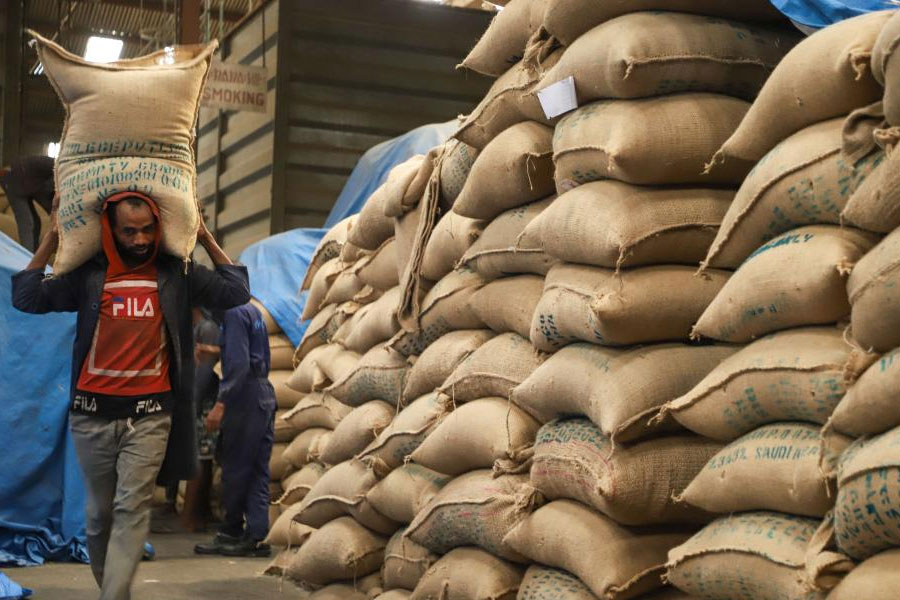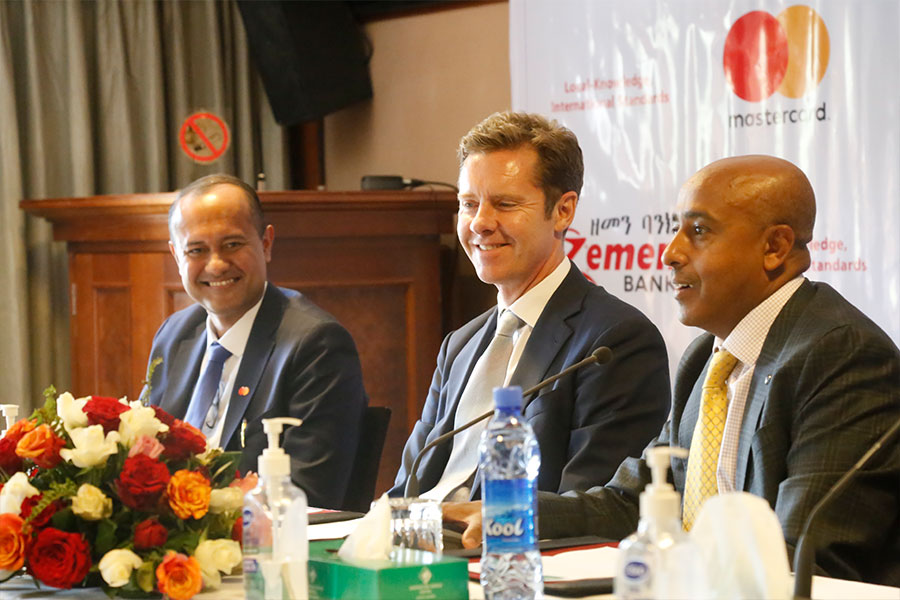
Advertorials | Sep 13,2021
May 16 , 2020
By GELILA SAMUEL ( FORTUNE STAFF WRITER
)
The National Bank of Ethiopia (NBE) has temporarily suspended commercial banks from foreclosing on the properties of defaulted borrowers. The suspension will remain active for three months.
In a circular dispatched to all commercial banks last month, the central bank temporarily suspended provisions in three directives that were issued to administer outstanding loans and advances and overdraft facilities.
The temporary freeze on foreclosures will be effective for non-performing loans, which the borrowers stopped servicing for three months to half a year. It will also be applied to medium and long-term loans that are past due between a year to a year and a half.
The circular suspended a provision of a directive that categorises non-performing loans and advances, as well as overdraft facilities, as substandard loans, which carries a risk of loss for the lender. The central bank's directive that was issued two years ago classified renegotiated loans as substandard when the borrowers missed consecutive installment repayments.
Before the circular, the National Bank had also put off the iteration requirement for the rescheduling of loans more than three times. In addition, the condition for rescheduling short-term loans required that borrowers pay 25pc of the outstanding principal balance at a minimum for the second time and 50pc for the third time.
The suspension will make the non-performing loans of banks remain under the maximum threshold set by the regulatory bank, according to Abdulmenan Mohammed, a financial expert for close to two decades.
“Moreover, the losses that could arise from loan impairment will be lessened," he said. "This measure should be complemented by constant monitoring of the situation.”
The circular also suspended the mandatory loan portfolio composition of borrowers, which required a 40:40:20 ratio of short-term, medium-term and long-term loans, respectively.
This was a scheme to make banks buy more NBE bills, according to Wondossen Teshome, president of Enat Bank.
“This will give us the breathing space to be flexible on our lending terms while we deal with the shock of COVID-19,” he added.
Banks and microfinance institutions were also required to update the details of credit information of borrowers once a month and quarterly, respectively. However, the circular suspended this requirement for borrowers impacted by the Novel Coronavirus (COVID-19) pandemic and those whose credit standing has been downgraded to a substandard level or worse.
Regardless, the actual status of the loan is required to be submitted to the Credit Bureau for follow-up and updated information.
Credit records are held to evaluate the credit history of borrowers, according to Abdulmenan.
"Suspension of this requirement will help borrowers in the future, since poor repayment behaviour in this crisis time is put on their loan records," he said.
Banks are also not supposed to rectify adjustments suggested by CAMELS ratings [Capital adequacy, Asset quality, Management, Earnings, Liquidity, & Sensitivity]. The rating is sent by the central bank to all state-owned and private banks quarterly.
“This would have been very hard for banks, since all of the evaluation terms are impacted and tested by COVID-19," said Wondossen. “This is a big relief for all of the banks, as it wouldn’t reflect the real score of the banks, which are already impacted by the pandemic.”
In the first quarter of this fiscal year, the total outstanding borrowing of the banking system stood at 73.8 billion Br, an 11.1pc annual increase. Out of total loans, 39.6 billion Br was disbursed in fresh loans, indicating 31.8pc annual growth. Of the total new loans disbursed, the share of state-owned banks was 29.5pc, while private banks held 70.5pc.
Banks have recently been struggling with a major liquidity issue. Private banks reached a 78pc loan-to-deposit ratio in December 2019, which is the highest rate in the last three years, while CBE has maintained its 100pc-plus position, according to a study conducted by the Ethiopian Bankers Association.
“What should be watched for is any sign of large-scale defaults or serious liquidity problems that may undermine the stability of the banking system," the expert added.
PUBLISHED ON
May 16,2020 [ VOL
21 , NO
1046]

Advertorials | Sep 13,2021


Radar | Apr 16,2022

Fortune News | Apr 02,2022

Fortune News | Dec 10,2022

Radar | Oct 03,2020

Radar | Dec 12,2023

Radar | Oct 17,2020

Fortune News | Jun 04,2022

Commentaries | Mar 25,2023

Dec 22 , 2024 . By TIZITA SHEWAFERAW
Charged with transforming colossal state-owned enterprises into modern and competitiv...

Aug 18 , 2024 . By AKSAH ITALO
Although predictable Yonas Zerihun's job in the ride-hailing service is not immune to...

Jul 28 , 2024 . By TIZITA SHEWAFERAW
Unhabitual, perhaps too many, Samuel Gebreyohannes, 38, used to occasionally enjoy a couple of beers at breakfast. However, he recently swit...

Jul 13 , 2024 . By AKSAH ITALO
Investors who rely on tractors, trucks, and field vehicles for commuting, transporting commodities, and f...

Jul 5 , 2025
Six years ago, Ethiopia was the darling of international liberal commentators. A year...

Jun 28 , 2025
Meseret Damtie, the assertive auditor general, has never been shy about naming names...

Jun 21 , 2025
A well-worn adage says, “Budget is not destiny, but it is direction.” Examining t...

Jun 14 , 2025
Yet again, the Horn of Africa is bracing for trouble. A region already frayed by wars...